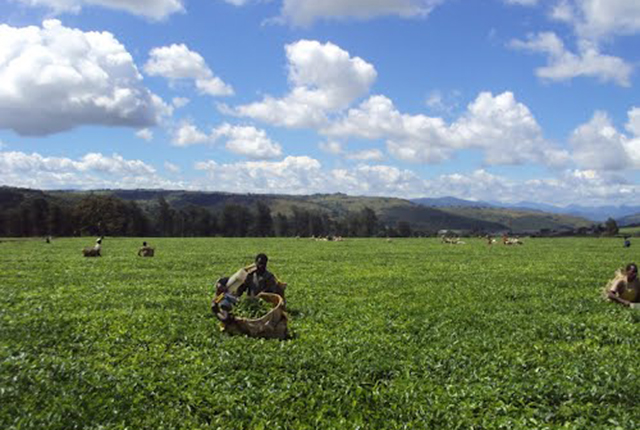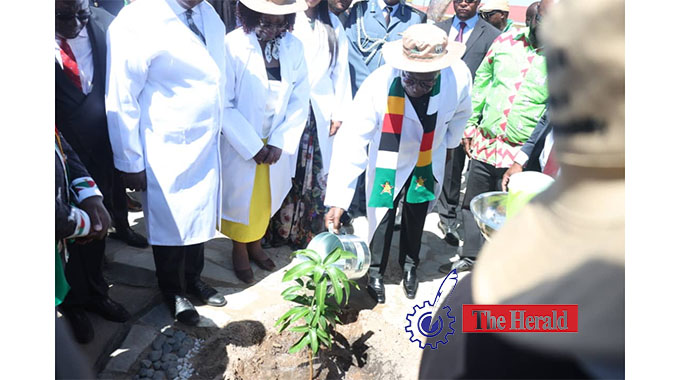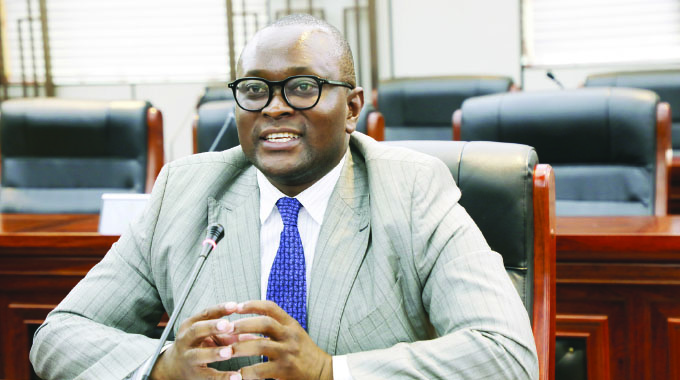Editorial Comment: Independence Day: Reflect on the past, future

The majority of Zimbabweans were not born when their country achieved democracy and independence and while everyone has learnt something of the past in history lessons and from what they have read, they have no personal experience of just what was so momentous and what major changes occurred on 18 April 1980.
In many ways this is positive, so long as Independence Day becomes more and more a celebration of being Zimbabwean and thinking about what sort of country we want Zimbabwe to grow into, what we want our country to be.
This does not mean, though, that our past is not important. Even if we are under 41 we did not emerge into a vacuum. We are living in a country that is a product of what our parents, and increasingly our grandparents, suffered for and strove to create.
And that suffering and striving has lessons for us today, the older generations as well as the young, when we celebrate freedom and think about how we want to grow.
So why we cannot live in the past, we can learn from the past, the things that went right and the things that went wrong and rededicate ourselves to making the promises of independence a reality.
For the biggest single change that independence and the accompanying democracy made is that we, as a people, can choose our own future. We are not victims of circumstance, we are not under the control of those who do not wish us well. We are the owners of our land, the masters of our own destiny.
Some of that required spirit comes from the struggle for freedom itself. Zimbabweans were not given freedom on a plate by colonialists who had a change of heart and let their better nature determine their new policies.
The settler regime had to be defeated in war when appeals to humanity and freedom failed.
And that took the mobilisation of millions. Some fought and died. But that armed struggle would have been impossible, and doomed to failure, if the overwhelming majority of the people had not supported the battle in a vast number of ways and been prepared to take the consequences of their support. More “civilians” than fighters died.
We need to remember that collective enterprise, that collective struggle. Because we were human our efforts were not perfect, and there were mistakes, but as a people we won our freedom.
And that collective effort characterised that first independence day, that feeling of universal joy and that feeling that now all things were possible.
Zimbabwe became what can be characterised as a high-morale society, one where people could look around at what they had inherited and list what had to be changed, quickly.
So we built the schools and universities; we built the hospitals and clinics; we opened our economy at all levels to everyone.
And a lot of changes happened almost overnight simply because we wanted them to happen and were prepared to work to make them happen. That spirit is needed today.
At times over the past 41 years we have taken wrong turns; at times we have become bogged down in swamps of our own making that need to be drained.
At times we have seen too many ready to emulate our old settler rulers, that so long as we and ours were all right the rest of the people did not really matter at all. Selfishness is not unique to any group.
In many ways corruption is similar to colonialism, taking what is not ours so we can live better on the backs of those we take from and oppress.
The one difference is that we can demand our new systems do something about it, but as in past struggles we have to play our part by refusing to be victims and in giving our support.
But what we need to remember when we celebrate independence is that when we do take a wrong turning, we have a light that can show us we are on the wrong path, and a map that can get us back on track. And very largely we have used that illuminating beacon to move forward.
When we talk about national unity, which means unity of purpose rather than agreement on everything, when we talk about democracy and freedom, when we talk about collective efforts, we are not speaking empty phrases from a handbook. We are talking about practicalities, the very steps that won and maintained our freedom.
And when we do act together, quibbling on detail, yes, and debating major policies, of course since we all have to have our say to be part of the collective effort, we have won through. All our progress comes from that.
So Independence Day is not just a public holiday, a day to relax. It is a day when we should look at our free Zimbabwe and rededicate ourselves to each other and to our country.
We can look at those things we have done, and take pride in our achievements, and look at what we have failed to do, work our why, and then resolve to overcome. We have won far worse battles than we are fighting now, we have overcome so much.
So independence day is not only a commemoration of the past, important as that is. It is also the first day of our future, and because we were freed on that day in 1980, it is our responsibility, and no one else’s, to work for the future we want.
And increasingly this will be the job of those born in freedom; already they are edging into Government, already they are moving to the top in business and many other fields.
They do not remember the past, but they can see the beacon that was lit in 1980 and fuelled by the struggle that preceded that day.
And they need to keep that light bright across the years and decades they will be calling the shots and making the decisions, so they have the best chance of making the right ones.








Comments